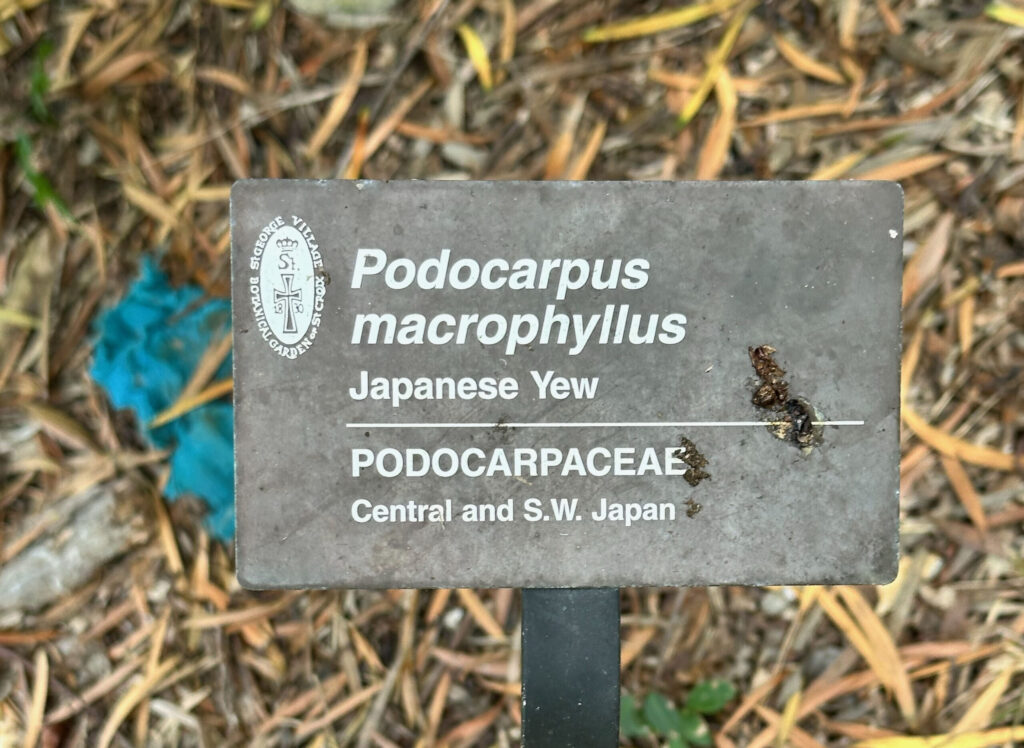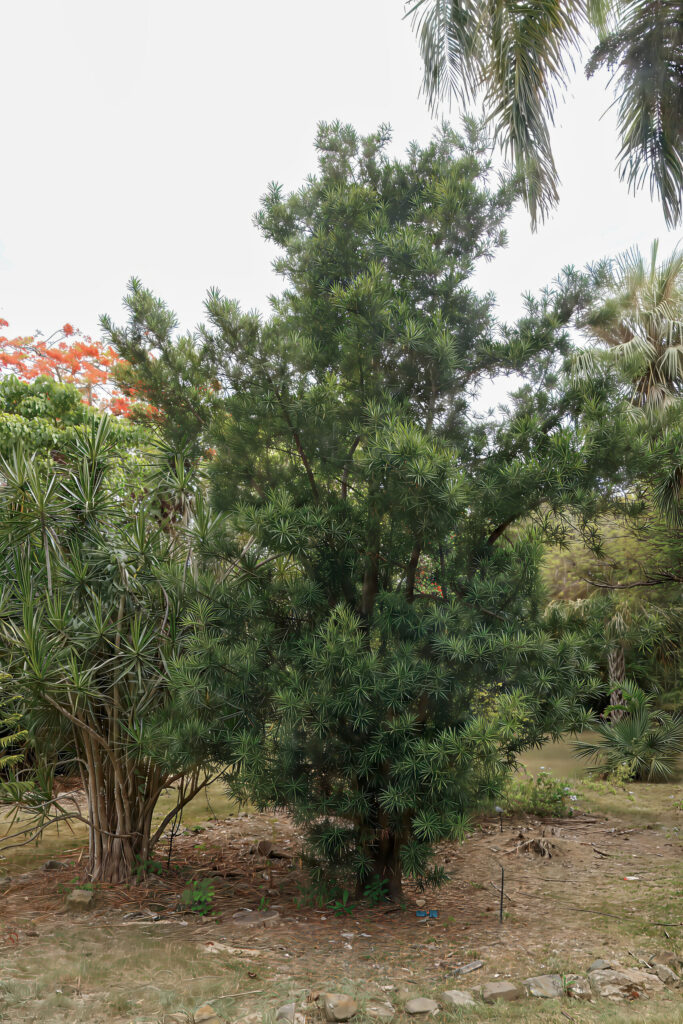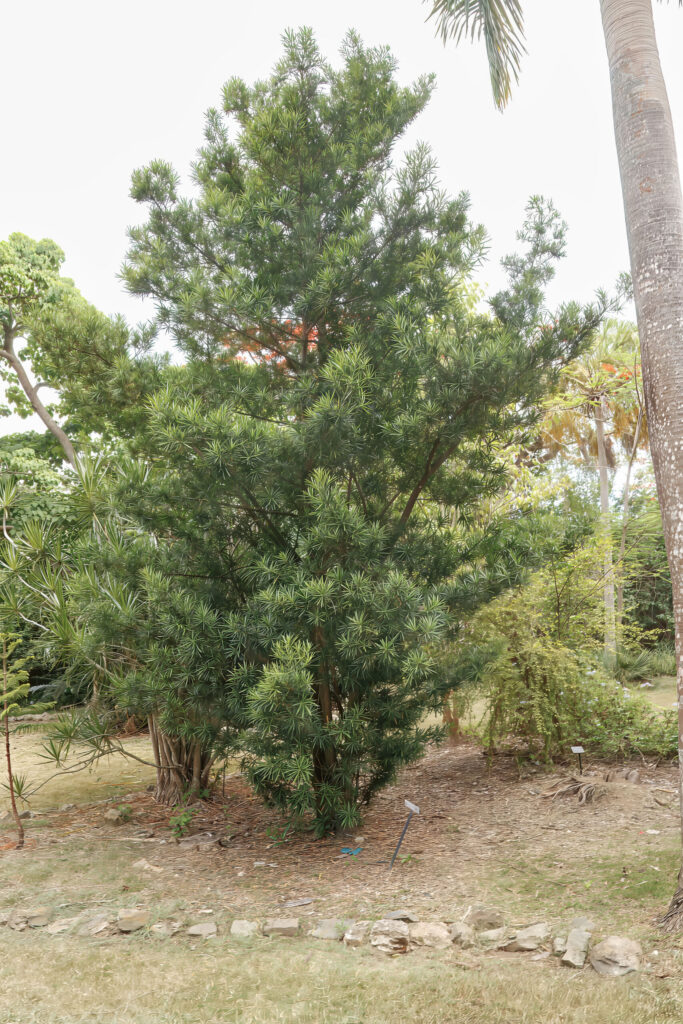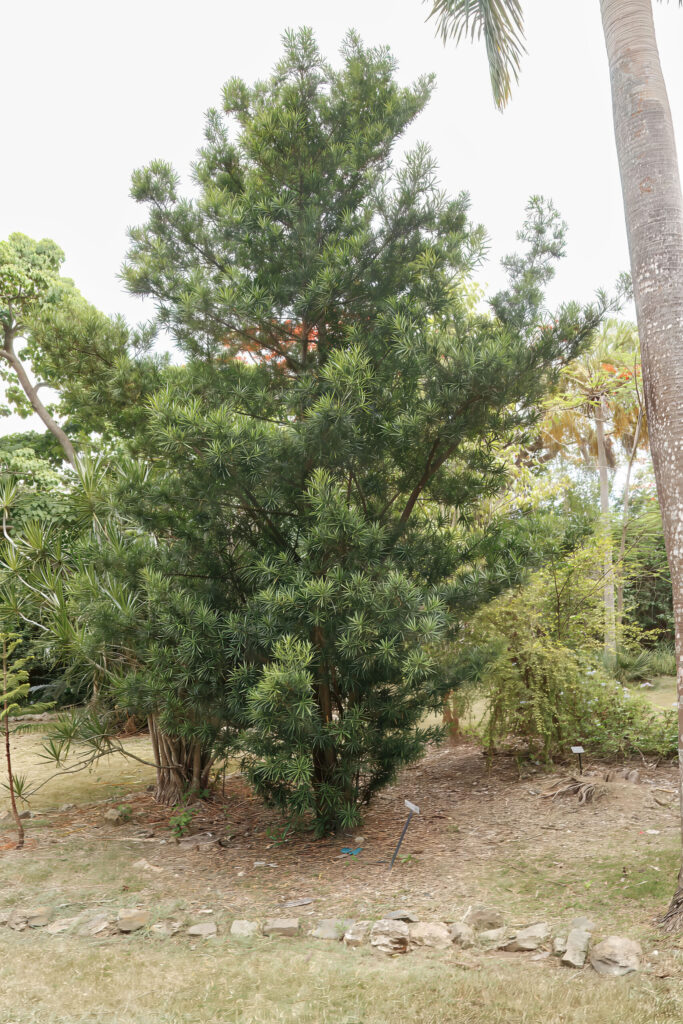Japanese Yew
Scientific name: Podocarpus macrophyllus
POWO Status: Tree
IUCN Red List threat level: Least Concern
GPS Location: 17° 42′ 55.33″ N, 64° 49′ 45.64″ W




Observations:
Phenological Markers – Podocarpus macrophyllus (Buddhist Pine)
Family: Podocarpaceae
Common Names: Buddhist Pine, Yew Podocarpus, Fern Pine, Japanese Yew (though not a true yew)
Habitat: Native to southern Japan and China; widely cultivated in subtropical and tropical regions, including the Caribbean, for landscaping and ornamental use. Tolerates a wide range of soils and grows in partial shade to full sun.
Phenological Markers:
- Flowering Period:
Generally flowers in late winter to early spring (February to April). Cones (reproductive structures) are dioecious, with male and female cones typically on separate plants. Male cones are small, cylindrical, and pollen-bearing; female cones are even smaller and less conspicuous. - Fruiting Period:
The seed cones mature over several months, often becoming apparent in late summer to early fall (August to October). The seed is enclosed in a fleshy, purple to red aril, resembling a fruit and attractive to birds. - Leaf Fall:
Evergreen. Older leaves may yellow and fall gradually, especially under drought stress, but new leaves emerge continuously. - Budding Period:
New leaf flush and bud growth typically begins in late winter through spring (January to April), with some mid-year growth spurts in humid climates.
Key Features:
- Leaves: Linear to lanceolate, leathery, dark green, arranged spirally or in two ranks. Often mistaken for yew or fir foliage.
- Cones/Fruits: Not true fruits; the reproductive seed is borne in a fleshy receptacle (aril) that turns reddish-purple when ripe. Often bird-dispersed.
- Growth Habit: Dense, upright evergreen tree or shrub; can reach 10–20 meters in height when unpruned, but often maintained as a hedge or specimen tree.
Additional Notes:
Despite its yew-like appearance, it is a conifer in the Podocarpaceae family, not a true yew (Taxus).
Podocarpus macrophyllus is highly adaptable and valued in formal landscaping, bonsai, and screen plantings due to its slow, tidy growth.
It is non-toxic, shade-tolerant, and wind-resistant, making it well-suited for urban settings, courtyards, and arboreta.
